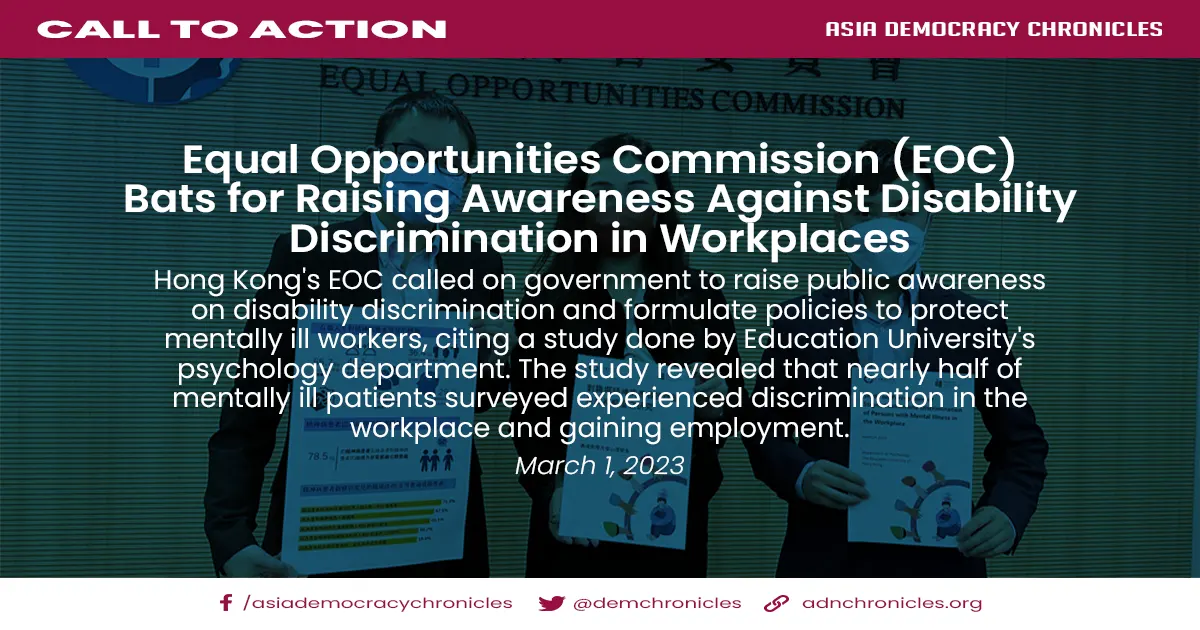|
Getting your Trinity Audio player ready...
|
1 March 2023
Almost half of patients who are mentally ill said they experienced discrimination in their workplaces or in the process of seeking jobs during the past five years, a study by the Equal Opportunities Commission has found.
Commissioned by the department of psychology of the Education University, the study surveyed 593 employed people with no mental illness between May and July in 2020 and 265 mentally ill people between May and November in 2020.
Some 50 employers and supervisors were also interviewed between February and July in 2021.
Nearly 80 percent of mentally ill people said that discrimination against them was prevalent, especially toward those with anxiety and bipolar disorder. Seven in 10 said having fewer promotion opportunities was the most commonly observed form of discrimination, followed by not getting hired because of their condition.
In addition, 36.2 percent, 32.8 percent and 32.8 percent of respondents with mental disorders said they experienced discrimination when seeking a job, while at the workplace and during the quitting process respectively. Some 45 percent experienced discrimination in at least one of the three processes, while 12.5 percent faced discrimination in all three processes.
Although 85.9 percent said that mental health support from companies was necessary, only 12.5 percent said they had access to such support.
Meanwhile, one fifth of employed persons who do not have a mental illness held stigmatized views against those who do. More than half of them worried that those who are mentally ill would harm others.
Doris Tsui Ue-ting, acting head of the EOC said that it was of “great importance to eliminate the stigma attached to persons with different mental conditions and prevent discrimination against them.”
The commission suggested the government raised public awareness about disability discrimination, as well as formulate relevant anti-discrimination policies and measures within the workplace to facilitate the rehabilitation of mentally ill persons.
They also hoped employers could provide reasonable working accommodation for employees and ensure that those with mental health conditions can seek medical consultation and apply for sick leave.
“Just having a policy is not enough — how the management implements the non-discrimination practice requires the joint effort of the company,” Tsui added. #
Source: https://www.thestandard.com.hk/section-news/section/4/250270/Mental-empathy-a-work-in-progress



















